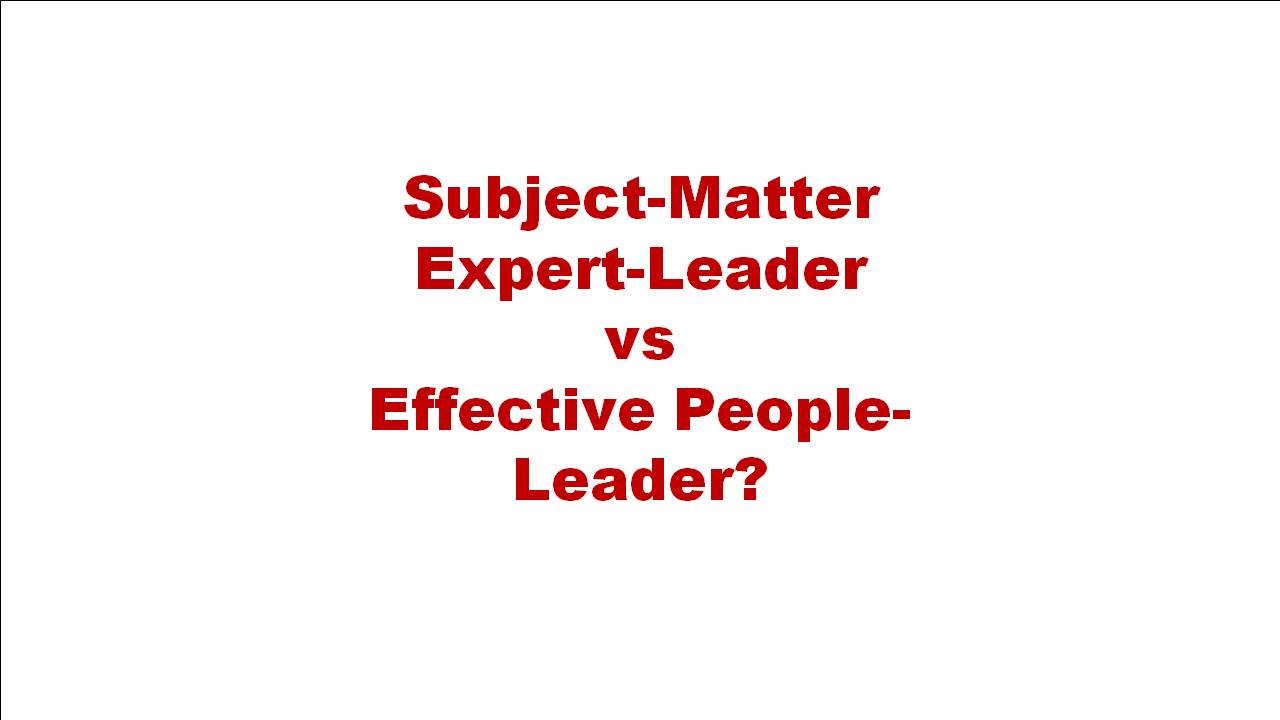by Peter A. Arthur-Smith
“You don’t have to be a subject-matter expert leader to be an effective people-leader: In fact, it can often be a detriment!”

How many of you watched the recent Apple TV series “Ted Lasso”? For those who didn’t, it’s a story lesson about how an American football coach went to England to become coach of a UK Premier Division soccer/football team – Richmond FC. Over three years the story goes: He took this team, languishing at the bottom of the division for several seasons, to become Division Champions within three years…all a fictional story of course! Even so, it still served as a great instructive class on; ‘You don’t have to be a subject-matter expert-leader to be an effective people-leader.’
Even so, the moral of the story was: He didn’t ultimately succeed because he was the most knowledge-able soccer/football person. In fact he knew absolutely nothing about the strategy, tactics or culture of English soccer when he arrived at Richmond’s fabled stadium. However, this human fable depicts how he surrounded himself with all the experts he needed, who respected him because of his people-leadership style more than for his game knowledge. He had a real human touch.
Lasso clearly knew how to motivate top-flight professionals, regardless of their particular game expertise. He also knew how to turn the team around after some humbling, successive defeats. Furthermore, he knew how to inspire players to work for each other rather than become wrapped-up in their own glory. Beyond that, he knew how to challenge players to raise their personal and team expectations. Ultimately, he had the emotional intelligence (EQ) to handle the highs and lows of game-competition.
Of course, his growing soccer/football exposure helped to shape his message at times, although he usually relied upon commonsense, human examples when he shared important learning points. This included taking his team away to Amsterdam, Holland, for a long weekend to help pull it out of a performance funk. The team found time for a bit of soul-searching and how to become better team-mates. The medicine seemed to work.
Rather than get overly sucked into conventional soccer/football lore and become obsessed with game technicalities, he focused more on player attitudes, confidence and teamwork. He also kept a great sense of humor despite some pretty desperate moments and always found ways to inspire team members when stuck in moments of self-doubt. Moreover, he didn’t spend time focusing on “what was wrong with his players,” but rather focused on their strengths and where they could do even better than today.
Lasso used a similar approach toward the team’s support and coaching staff, so they valued him as an inspirational force rather than a “know-everything” person. Wherever appropriate, he spent quality time with them to infect them with his human touch. How much are you valued in a similar fashion?
If you haven’t seen the series, it’s worth looking it up. It’s fun and funny many times over. It’s not a theater masterpiece, although has a humorous and down-to-earth cast. Its real-life style is both entertaining and philosophically thoughtful. After all, it did win an Emmy Award for best TV series in 2022.
In fact, just to turn to a real-life example: Think of Lou Gerstner the American executive who famously turned IBM around during 1993-2002 without prior computer company experience. Prior to that, he worked as a top-tier executive within American Express and a well-known tobacco company. When he joined IBM it was in disarray with its prior, long-serving CEO being forced out. Lou encouraged IBM to exit the mainframe and laptop computer markets and put it on a path toward providing computer services – this included setting it on course to become a leader in cloud computing. He was much appreciated as a people-leader.
Also consider Alan Mullaly who retired as CEO of Ford Motor Company in 2014 after being a senior executive at aerospace company Boeing for many years. Through his well-known people-leadership, he turned Ford around and put it on a much more successful track. Then there’s Mary Barra who broke the glass-ceiling at General Motors and went on to become a much admired people-leader rather than set herself up as an all-knowledgeable industry expert, despite many years of experience within the company.
So, if you wish to become a beloved leader, who takes his/her team from the doldrums to greater performance heights, consider Ted Lasso, Lou Gerstner, Alan Mullaly or Mary Barra as potential role models. Don’t lead with your market, product or technical know-how, but rather lead with your inherent people skills – the ones you use with your family members and friends, although without stepping over the intimate-line. You can always surround yourself with the experts you need. Besides, if you’re too technically knowledgeable, your people are likely to rely upon you as their fountain-of-all-knowledge and never become experts themselves. After-all, as one English painter-philosopher Sir Joshua Reynolds pointed out: There’s no expedient that man will not go to avoid the labor of thinking!
